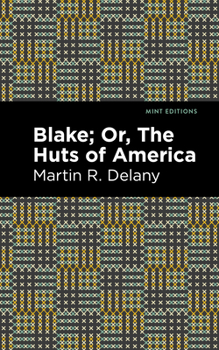Blake; Or, the Huts of America
Select Format
Select Condition 
Book Overview
Blake; Or, The Huts of America (1859-1862) is a novel by Martin Delany. Serialized in The Anglo-African Magazine, the novel has had a complicated publishing history due to the loss of the physical issues in which the final chapters appeared in May 1862. Despite this, Blake; Or, The Huts of America is considered a brilliantly unique work of fiction from an author known more for his activism and political investment in Black nationalism. Through the eyes of his hero Henry Blake, Delany envisions a future of revolutionary possibility and radical resistance to slavery and oppression. Though it was largely ignored upon publication, the novel gained traction with the Black Power and Pan-Africanist Movements in the twentieth century and has earned praise from such scholars as Samuel R. Delany, who described it as "about as close to an sf-style alternate history novel as you can get." Born free, Henry Blake is stolen into slavery from his family in the West Indies and taken to the Mississippi plantation of Colonel Stephen Franks. There, he marries Maggie, a fellow slave who happens to be the illegitimate daughter of Franks himself. When Maggie is sold away following a dispute with the master and his wife, Henry vows not only to find her, but to lead every last slave to freedom. He soon escapes, journeying in secret across the American South and interviewing enslaved African Americans along his way, learning the strategies of resistance and struggle they use every day for survival. As his reputation grows, Blake begins to organize a small uprising intended as only the first step of his radical revolutionary plan.
Since our inception in 2020, Mint Editions has kept sustainability and innovation at the forefront of our mission. Each and every Mint Edition title gets a fresh, professionally typeset manuscript and a dazzling new cover, all while maintaining the integrity of the original book.
With thousands of titles in our collection, we aim to spotlight diverse public domain works to help them find modern audiences. Mint Editions celebrates a breadth of literary works, curated from both canonical and overlooked classics from writers around the globe.





